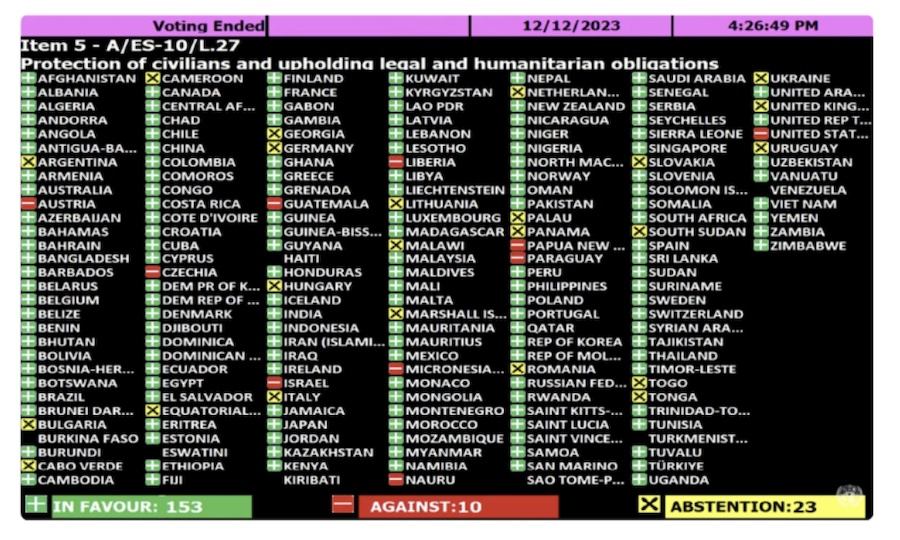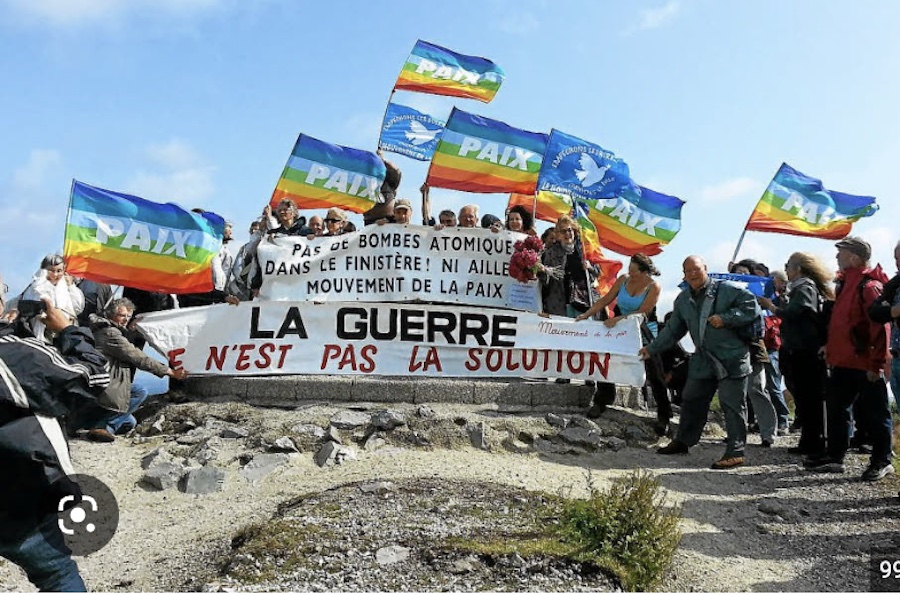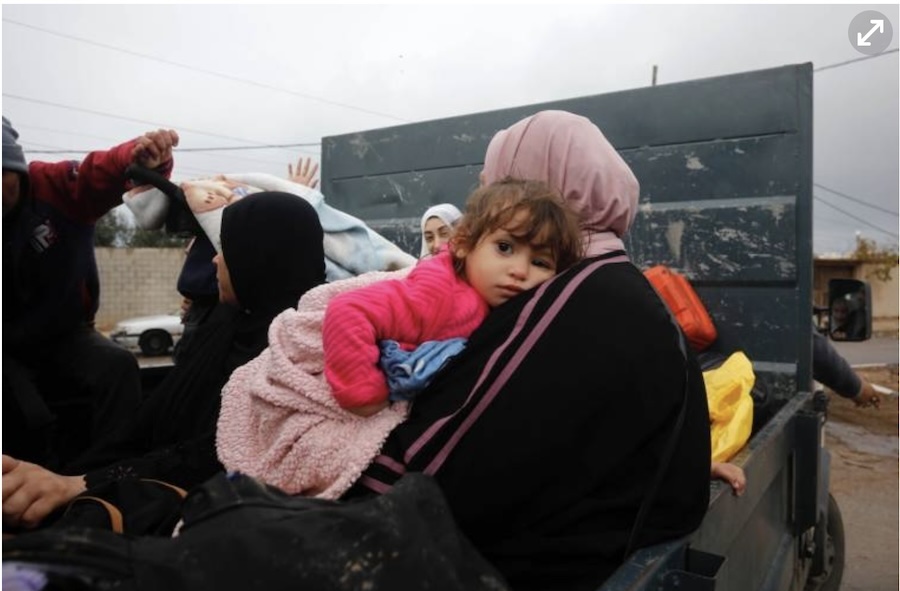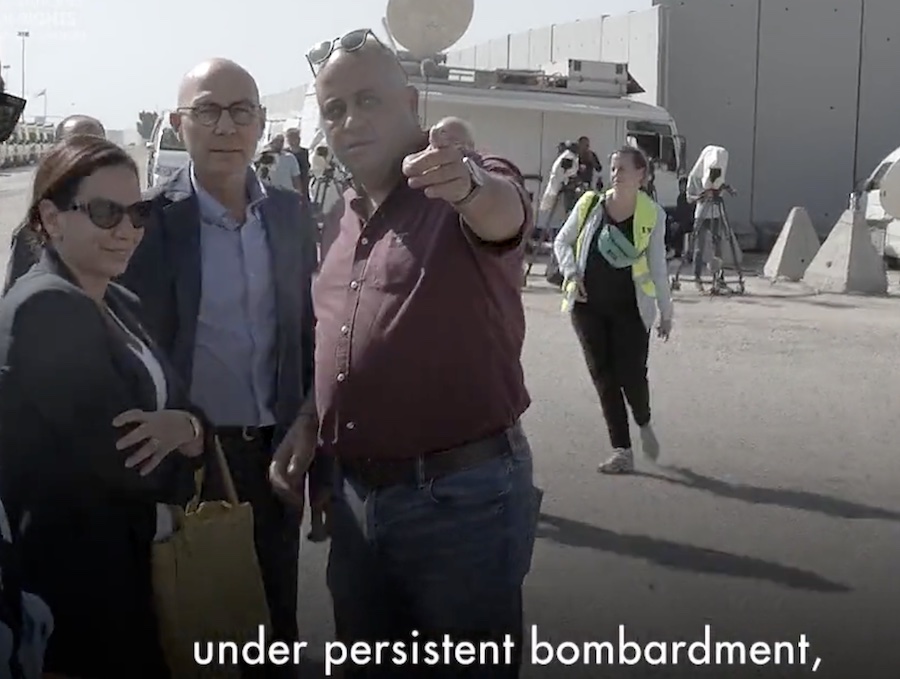. . HUMAN RIGHTS . .
An article by Julia Conley in Common Dreams (licensed under Creative Commons CC BY-NC-ND 3.0)
“No one knows apartheid like those who fought it before,” said one Palestinian rights advocate on Friday in response to the news that South Africa has taken a “historic” new step to hold Israel accountable for its relentless bombardment and violent yearslong occupation of Gaza—calling on the International Court of Justice to declare that Israel has breached its obligations under the Genocide Convention.

South Africans hold a Free Palestine March on December 16, 2023 in Eldorado Park, South Africa. (Photo by Laird Forbes/Gallo Images via Getty Images)
The Department of International Relations and Cooperation (DIRCO) in South Africa said it is “gravely concerned with the plight of civilians caught in the present Israeli attacks on the Gaza Strip due to the indiscriminate use of force and forcible removal of inhabitants” and called on the ICJ to take action to force Israel to “immediately cease” its current attacks on Gaza’s 2.3 million residents.
The motion was filed as the death toll in Gaza surpassed 21,500 people and tens of thousands of displaced residents fled an Israeli ground offensive, as airstrikes continued in southern Gaza.
Noting that South Africa has consistently condemned all attacks on civilians, including the assault by Hamas on southern Israel on October 7, the country’s representatives at the ICJ said Israel’s bombardment of Gaza is “genocidal in character because they are intended to bring about the destruction of a substantial part of the Palestinian national, racial, and [ethnic] group.”
“The acts in question include killing Palestinians in Gaza, causing them serious bodily and mental harm, and inflicting on them conditions of life calculated to bring about their physical destruction,” reads the application filed at the ICJ.
South Africa took its latest action regarding Israel less than two weeks after President Cyril Ramaphosa announced the government had submitted documents to the International Criminal Court (ICC) supporting its demand, made in November with several other countries, that the court investigate Israel for war crimes.
While the ICC prosecutes individuals and governments for committing war crimes, the ICJ operates under the United Nations to rule on disputes between countries. The ICJ’s orders are binding for Israel, as the country is a U.N. member state.
(continued in right column)
How can war crimes be documented, stopped, punished and prevented?
(continued from left column)
South Africa has joined international human rights experts—including the U.N.’s top expert on human rights in occupied Palestine—in saying Israel’s blockade of Gaza and violent treatment of those in the enclave and the West Bank is a form of apartheid, comparing Israeli policies to the racial segregation that was imposed for nearly five decades by the white minority that controlled South Africa.
Last month, the government voted to suspend diplomatic ties with Israel until Prime Minister Benjamin Netanyahu’s government agrees to a permanent humanitarian cease-fire.
“South Africa has continuously called for an immediate and permanent cease-fire and the resumption of talks that will end the violence arising from the continued belligerent occupation of Palestine,” the government said Friday.
Journalist Jeremy Scahill was among those who recognized the significance of South Africa’s application at the ICJ, noting that the country “fought for its own liberation against an apartheid regime supported for decades by the U.S.,” which is backing Israel’s assault on Gaza despite international outcry and protests within the United States.
“The U.N. Genocide Convention must be upheld. Israel must be held accountable,” said former U.N. human rights official Craig Mokhiber, who resigned from the Office of the High Commissioner for Human Rights (OHCHR) in October in protest of the U.N.’s failure to stop Israel’s massacre of civilians. “International law must be preserved.”
At the ICJ, South Africa called for an expedited hearing on Israel’s actions and asked the court to indicate provisional measures under the Genocide Convention to “protect against further, severe, and irreparable harm to the rights of the Palestinian people.”
Article 2 of the Genocide Convention, adopted in 1948, states that genocide includes acts committed with the “intent to destroy, either in whole or in part, a national, ethnic, racial, or religious group.”
Marwan Bishara, Al Jazeera’s senior political analyst, pointed out Friday that “the three leading Israeli officials have declared the intent” to wipe out Gaza’s population.
Bishara noted that Israeli President Isaac Herzog said in October that all civilians in Gaza are “responsible” for Hamas’ attack on southern Israel, days after Defense Minister Yoav Gallant said the military would collectively punish the enclave’s population, who he called “human animals.”
Netanyahu also said this week that so-called “voluntary migration” of Gaza residents is the ultimate objective of Israel’s assault.
On Friday, the spokesperson for Israel’s Foreign Affairs Ministry, Lior Haiat, dismissed South Africa’s motion as “baseless” and a “despicable and contemptuous exploitation of the court.”
Despite top officials’ recent statements, Haiat said the government has “made it clear that the residents of the Gaza Strip are not the enemy.”
Omar Shakir, Israel and Palestine director for Human Rights Watch, called South Africa’s move “a vital step to propel greater support for impartial justice.”
(Editor’s notes. As of January 4, South Africa was joined in their motion by Malaysia and Turkey and as of January 11 by Brazil and Colombia. As of January 11, readers are urged to watch the proceedings at United Nations Web TV.)












